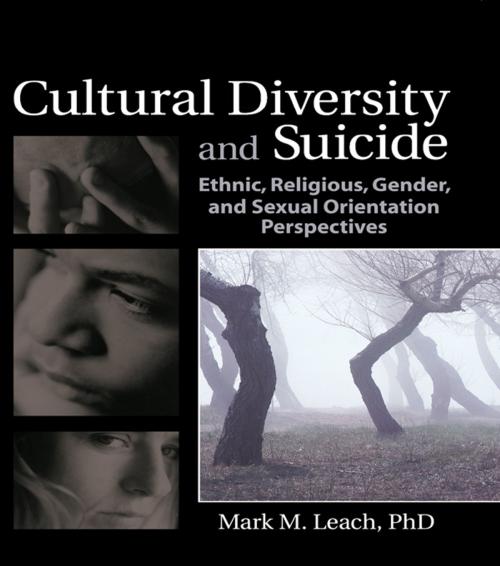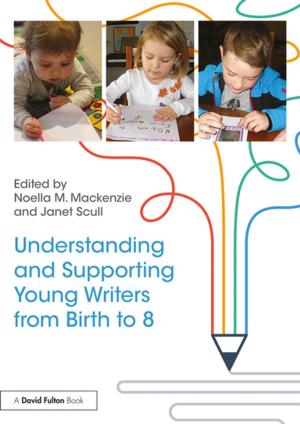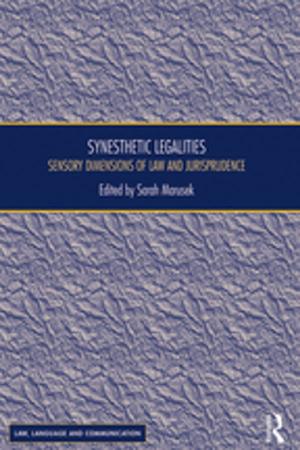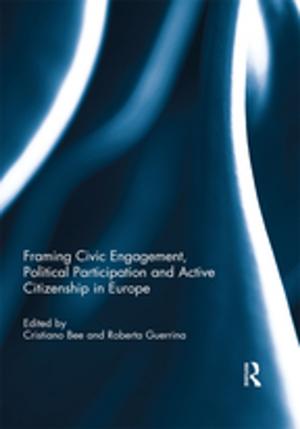Cultural Diversity and Suicide
Ethnic, Religious, Gender, and Sexual Orientation Perspectives
Nonfiction, Health & Well Being, Psychology, Suicide, Mental Health, Social & Cultural Studies, Social Science| Author: | Mark M Leach | ISBN: | 9781317786580 |
| Publisher: | Taylor and Francis | Publication: | February 25, 2014 |
| Imprint: | Routledge | Language: | English |
| Author: | Mark M Leach |
| ISBN: | 9781317786580 |
| Publisher: | Taylor and Francis |
| Publication: | February 25, 2014 |
| Imprint: | Routledge |
| Language: | English |
This book adds a vital and overlooked dimension-diversity-to suicide assessments and interventions
The literature on the relationship between culture and suicide has historically been widely scattered and often difficult to find. Cultural Diversity and Suicide summarizes that widespread literature so that counselors can begin to include diversity issues as important variables that can help them become even more effective when conducting suicide assessments or interventions.
For ease of reading, Cultural Diversity and Suicide is divided into chapters based on ethnicity. The book avoids broad generalizations whenever possible, thus each chapter specifically discusses critical within-group variables (issues relating to gender, age, religion, and sexuality) that should be considered when conducting suicide assessments and interventions. Each chapter includes at least one case study and incorporates clear headings that make it simple to find specific information.
Cultural Diversity and Suicide is not a book of cookie-cutter approaches to suicide prevention, nor is it a primer for the novice. Rather, it has been carefully designed to help counselors and counselors-in-training gain a fuller understanding of the issues that may lead individuals from diverse backgrounds to consider suicide-and the cultural aspects of an individual’s heritage that can influence that person’s decision. Written for professionals who have a pre-existing understanding of how to work with suicidal clients, the book begins with a concise but essential overview of traditional suicide risk factors and a brief assessment model (an excellent memory refresher), and then moves quickly into specific diversity issues relevant to:
-
European Americans
-
African Americans
-
Asian Americans
-
Hispanic Americans
-
Native Americans
Cultural Diversity and Suicide explores ethnicity and its relationship to suicide (for example, suicide rate and reason differences based on ethnic group or ethnic identity), plus meaningful within-group variables such as:
-
lesbian/gay/bisexual issues and the increase in suicide rate based on sexual orientation and sexual identity
-
religious differences-suicide rates among various religious groups, religious differences in views of suicide, views of the afterlife, burial practices, and views of lesbian/gay/bisexual people
-
cultural buffers, such as extended family and religious practice
-
suicide prevention interventions based on cultural differences (essentially, how traditional suicide prevention programs can be altered to include new variables)
This book is essential reading for everyone doing the vital work of conducting suicide assessments and interventions. Please consider making it part of your professional/teaching collection today.
This book adds a vital and overlooked dimension-diversity-to suicide assessments and interventions
The literature on the relationship between culture and suicide has historically been widely scattered and often difficult to find. Cultural Diversity and Suicide summarizes that widespread literature so that counselors can begin to include diversity issues as important variables that can help them become even more effective when conducting suicide assessments or interventions.
For ease of reading, Cultural Diversity and Suicide is divided into chapters based on ethnicity. The book avoids broad generalizations whenever possible, thus each chapter specifically discusses critical within-group variables (issues relating to gender, age, religion, and sexuality) that should be considered when conducting suicide assessments and interventions. Each chapter includes at least one case study and incorporates clear headings that make it simple to find specific information.
Cultural Diversity and Suicide is not a book of cookie-cutter approaches to suicide prevention, nor is it a primer for the novice. Rather, it has been carefully designed to help counselors and counselors-in-training gain a fuller understanding of the issues that may lead individuals from diverse backgrounds to consider suicide-and the cultural aspects of an individual’s heritage that can influence that person’s decision. Written for professionals who have a pre-existing understanding of how to work with suicidal clients, the book begins with a concise but essential overview of traditional suicide risk factors and a brief assessment model (an excellent memory refresher), and then moves quickly into specific diversity issues relevant to:
-
European Americans
-
African Americans
-
Asian Americans
-
Hispanic Americans
-
Native Americans
Cultural Diversity and Suicide explores ethnicity and its relationship to suicide (for example, suicide rate and reason differences based on ethnic group or ethnic identity), plus meaningful within-group variables such as:
-
lesbian/gay/bisexual issues and the increase in suicide rate based on sexual orientation and sexual identity
-
religious differences-suicide rates among various religious groups, religious differences in views of suicide, views of the afterlife, burial practices, and views of lesbian/gay/bisexual people
-
cultural buffers, such as extended family and religious practice
-
suicide prevention interventions based on cultural differences (essentially, how traditional suicide prevention programs can be altered to include new variables)
This book is essential reading for everyone doing the vital work of conducting suicide assessments and interventions. Please consider making it part of your professional/teaching collection today.















